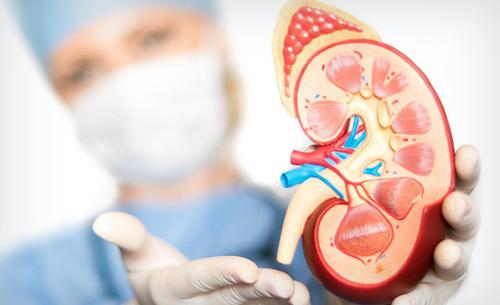Best Ways to Get Rid of Kidney Stones
Do I Have a Kidney Stone?
Kidney stones are the worst! If you've ever experienced this excruciating pain, you're unlikely to forget it. If you are reading this because you are experiencing pain in the lower back or groin, nausea, too-frequent urination, painful urination, or urine mixed with blood, you might be having your first kidney stone.
Kidney stones are formed in the urinary tract when high levels of crystal-forming substances stick together. Calcium, oxalate, and uric acid are the usual suspects. This over-accumulate in urine because of a diet rich with them or as an end-product of other metabolic precursors. A medium-sized kidney stone causes considerable pain, tissue damage in the urinary tract, and possible bleeding. Gastrointestinal disorders, bypass surgery, and metabolic disorders can also disrupt the normal composition of urine and result in stone formation. An unusual type of kidney stone made from struvite indicates a bacterial infection.
Other things to think about being possible causes of kidney stones is being overweight and/or having a family history of kidney stones or other medical conditions. Any of these could increase your risk of suffering this renal nightmare.
How to Get Rid of Kidney Stones
So, you have a kidney stone. Now, what do you do to get it out?
1. The Do's
The simplest kidney stone treatment is the most frustrating - drink lots of water and be patient. If it's a small stone (or two), it will flush itself out through the urethra. Hydration can include juices, but it's better to avoid sugary drinks. Dark colas can worsen the problem because of the high phosphate content as can dark beers which are high in oxalates. Drinks with a lot of citric acids, on the other hand, can provide double benefits. Citric acid can bind to calcium to prevent more stone formation, and it can also keep small stones from getting bigger.
Pain medication is a useful tool to get through the difficult waiting period. Non-steroidal anti-inflammatory drugs (NSAIDs) are generally over-the-counter and can help ease the pain.
It may seem as though you shouldn't take calcium or other stone-forming minerals, but in fact, that isn't a very helpful way of dealing with the problem. Oxalate-containing foods are generally healthy foods and should not be avoided altogether. Instead, dietary calcium binds with oxalate early in the digestive tract and prevents either one from being absorbed and shipped to your overworked kidney.
2. The Don'ts
Don't cut back on sodium as this tends to force calcium into the urine. This includes salt, of course, but also more insidious sources of sodium such as processed foods which often excess sodium added as a preservative. Foods containing monosodium glutamate or sodium alginate and fast food meals liberally sprinkled with salt are also a "no-no”. Limit your consumption of animal protein. Animal protein is rich in purines, an amino acid that is metabolized to uric acid which accumulates in urine. Avoid meat to prevent exacerbation of kidney stones and the development of gout. Specific oxalate-high foods you should also avoid are beets, chocolate, spinach, tea, and nuts.
3. When to Call the Doctor
If your home-based treatments don't eliminate the problem in a few weeks or if you experience immobilizing pain, pain with fever and chills, or blood in your urine, it's probably time to ask your doctor for help in getting rid of the kidney stones. Doctors might give you muscle relaxants such as alpha-blockers to ease the stone down the ureter and out of the body. If the stone is too large for this, extracorporeal shockwave lithotripsy – high-intensity ultrasound waves focused on the stone – might help break it into smaller pieces. For larger stones, optical fibers that deliver laser pulses might do the trick. The largest stones might need invasive treatment methods like the expansion of the urethra using a tube or keyhole surgery.

But I Don't Want Kidney Stones at All!
That's understandable ... nobody does. And there are ways to make sure you don't have to learn how to get rid of kidney stones. If you have already had a kidney stone, you are at a higher risk of having one again, so prevention strategy is even more crucial.
Keep yourself hydrated, of course, but there's no need to overdo it because there is no strong evidence that suggests overhydration helps any more than the standard 6-8 glasses per day. Urinate regularly. Ensure a balanced amount of calcium is always in your diet to prevent oxalate accumulation in the urine. Limit sodium and animal protein intake, and exercise to maintain a healthy weight.
Following these tips will help keep your kidneys in general good health. Try not to pop too many pills. Even over-the-counter NSAIDs like ibuprofen should not be over-consumed as they can result in kidney damage. If you smoke, quit. Smoking ruins blood vessels thereby reducing blood supply to the kidneys which reduce their efficiency. Finally, if you've had kidney stones or if related problems run in the family, get yourself regularly screened to ensure that your kidneys are always on top of their game.
YOU MAY LIKE
-
Amazing Facts About Pain in the Back and Frequent Urges to Urinate
-
Why Does It Hurt When I Pee
-
Why Do You Pee When You Cough?
-
6 Effective Ways to Treat Urinary Tract Infection (UTI)
-
Ways to Avoiding Urinary Tract Infections
-
Vital Tips to Prevent Kidney Stones
-
Abdominal Pain and Frequent Urination Female: Causes and Tips
-
Want to Pee but Can’t? Reasons and Solutions Why This Could Happen
-
Causes and Tips for White Blood Cells in Urine
-
Why the Epithelial Cells Appear in Urine?
